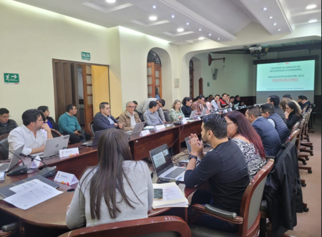Cuenca: Urban Parish Assemblies

The Urban Parish Assemblies of Cuenca, Ecuador, are a practice held annually, involving the entire municipal team in addressing identified citizens' needs in each territory. The process remains active throughout the year, accounting for four main stages: socialization workshops, Parish Assemblies, technical analysis, and Cantonal Assembly. These stages focus on prioritizing the projects and/or services that will be executed by the municipal budget the following year.
Citizens attend these participation spaces through an open call to request attention to their needs. The Municipal GAD (Decentralized Autonomous Government) analyzes each one to assess the feasibility of their execution, ensuring the satisfaction of the citizens' needs. The massive participation of citizens helps to define the community's main needs, thereby ensuring equitable impact in the municipal actions within the urban area.
The Municipal GAD also focuses efforts on proper territorial diagnosis and analysis of the needs identified by citizens, aligning the reality of the territory with its planning, that should translate into works and services.
The indicators of compliance and citizen satisfaction have been increasing thanks to continuous improvements in the process methodology. It also enables the estimation of public spending for future budgets with categorization of citizens' needs.
Cuenca has become a benchmark in Ecuador for this process and has maintained citizens' trust in municipal actions through these participatory processes.





Share
Or copy link